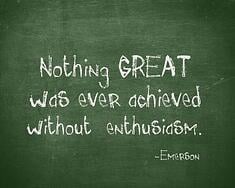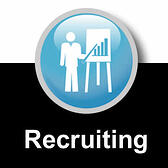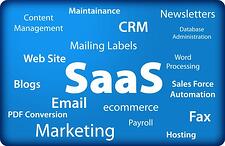
This may seem like a blog post title that seriously overreaches. But, there is a sense in which there is one simple, essential ingredient to job search success. This is it:
Visualize your goal.
It's not enough just to have a goal, although that appears to be critical for success in job search as in just about everything else. It's also important to paint a picture in your mind of what your goal would look like, feel like, sound like, etc. Brain science suggests that the brain is stimulated in the same regions whether we are only visualizing or actually experiencing a state of affairs.
Srinivasan S. Pillay, M.D. is a master executive coach to Fortune 500 leaders who examines new findings in brain science and makes suggestions for business behavior in his book: Your Brain and Business: The Neuroscience of Great Leaders.
If you want to explore his ideas in depth, Dr. Pillay discusses a range of compelling ideas to emerge out of brain research that have the potential to enhance leadership success.
But for those of us who aren't F500 executives, goal visualization holds great promise as well. The US Olympic Committee has increased the number of psychologists on staff 600% over the past 20 years in recognition of the importance of training athletes mentally to achieve their goal. Read more at Business Insider.
For years I've been coaching clients on how to interview to get the job. One key ingredient in my coaching is to encourage clients to visualize before the interview starts that they are already in the job and functioning with authority as part of a productive team. In visualizing these states of affairs, they are feeling confident, "in their element," collegial, knowledgeable, valued and have a sense of belonging and of liking their colleagues. The impact of this kind of visualization on a client's body language, energy, attitude towards the interviewers, and general affect can be profound.
People promoting visualization as a success tool suggest that by visualizing the goal the person is actually preparing the brain to understand and proceed on the steps that need to be taken to reach the goal.
In job search, the individual can visualize the ultimate goal - being an employee at their company of choice - and also visualize performing the steps required to meet that goal: connecting with people from the company or recruiters on LinkedIn, leaving a message for a hiring authority, meeting with key networking contacts, writing two letters a day to specific hiring authorities at specfic companies, etc.
The time required to do this kind of visualization daily is not more than a minute. See if it works for you in helping you get the job you want!


 Courtesy Gallup
Courtesy Gallup


 You already know that cloud computing is now and will continue to be impacting the tye of jobs technologists and technology executives will have in the future. Another mega trend that will impact tech careers is rapidly becoming a strategic priority for companies: superstacks. The term is so new I couldn't find an image in Google images for it - just pictures of smokestacks!
You already know that cloud computing is now and will continue to be impacting the tye of jobs technologists and technology executives will have in the future. Another mega trend that will impact tech careers is rapidly becoming a strategic priority for companies: superstacks. The term is so new I couldn't find an image in Google images for it - just pictures of smokestacks! Credit to
Credit to 


